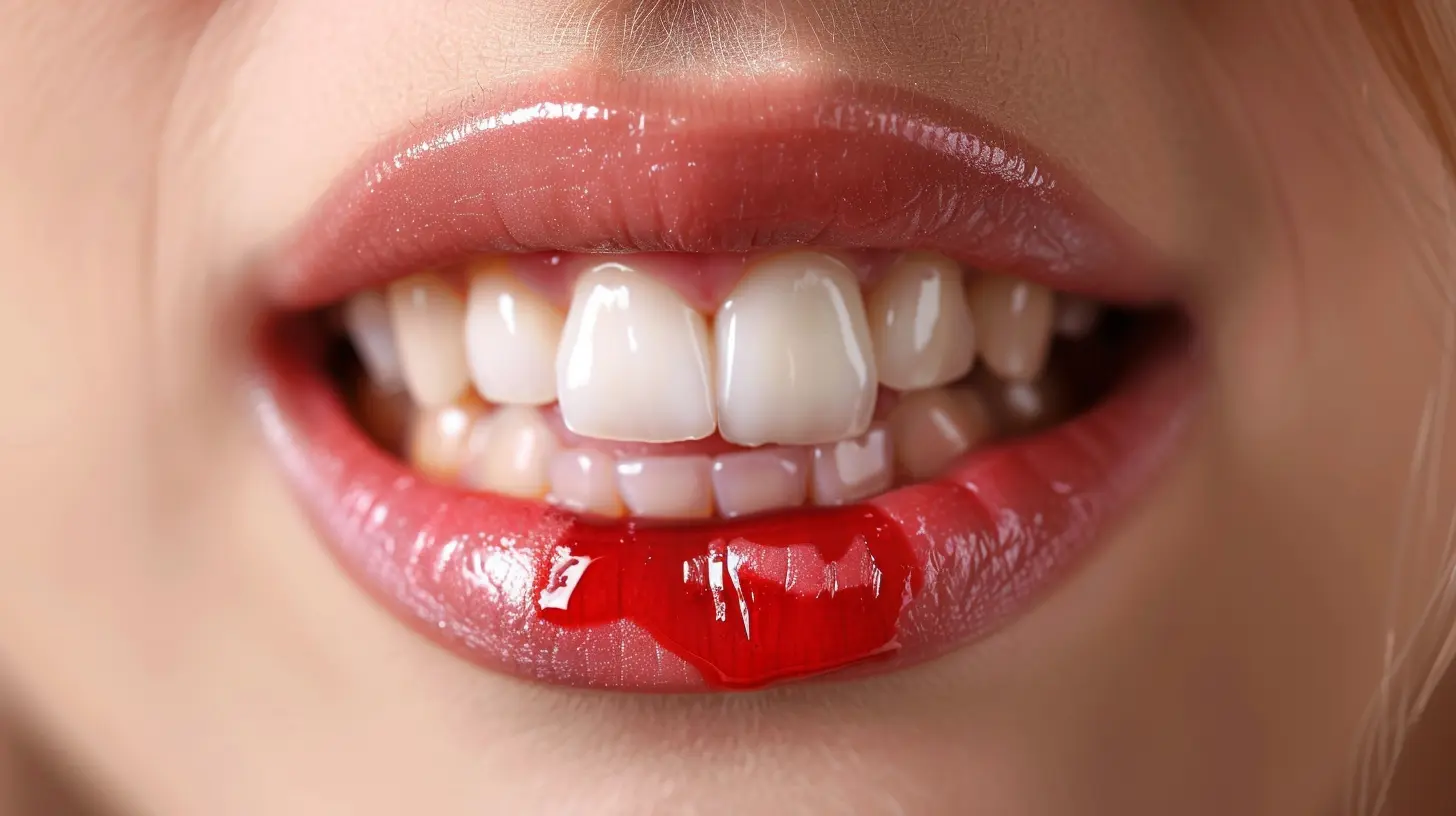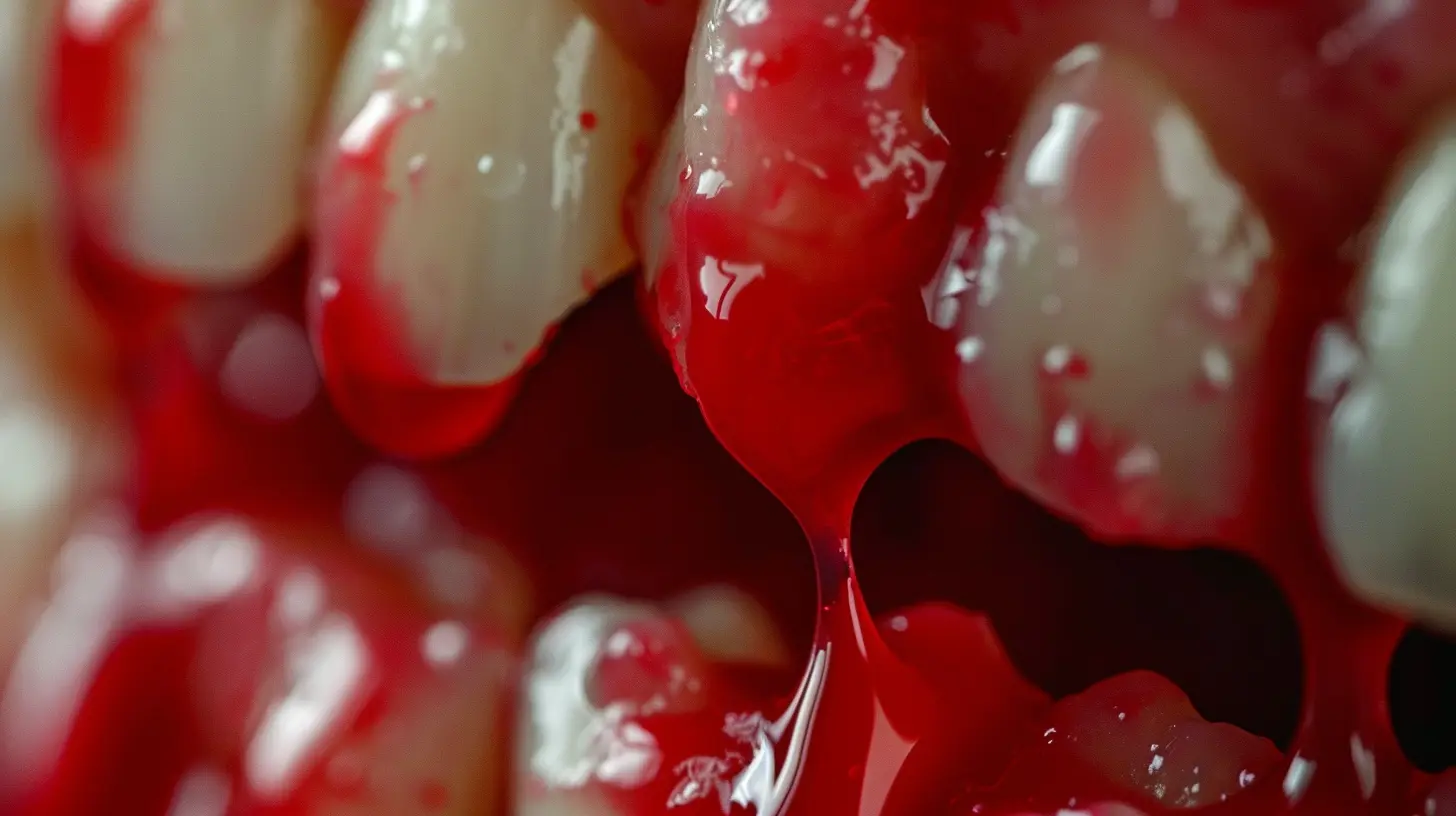31 March 2025
Have you ever brushed your teeth, only to notice some pink or red streaks on your toothbrush or in your sink? It’s unsettling, isn’t it? Bleeding gums might seem like a small, harmless issue at first, but it’s often your body’s way of sounding an alarm bell. It’s saying, “Hey, something’s not right here!” Ignoring it could lead to bigger oral health problems down the road.
In this article, we'll dive into the nitty-gritty of why your gums are bleeding, what it means for your health, and, most importantly, how to stop it. Stick around—your gums will thank you! 
What Causes Your Gums to Bleed?
Bleeding gums can happen for a variety of reasons. While they’re not always cause for panic, it’s essential to pinpoint the root cause so you can tackle it head-on. Let’s uncover some of the common culprits.1. Poor Oral Hygiene
Let’s be real—how often are you flossing? If the answer is “I flossed...um, last week?” then your gums might be telling on you. Plaque buildup along the gumline is one of the biggest reasons gums become irritated and bleed. Plaque is like a sticky film of bacteria that clings to your teeth. If it’s not removed regularly through brushing and flossing, it hardens into tartar and inflames your gums, leading to bleeding.2. Gingivitis (The Early Stage of Gum Disease)
Think of gingivitis as the wake-up call from your gums. It’s an early form of gum disease caused by plaque and tartar buildup. The symptoms are pretty classic: swollen, red gums that bleed during brushing or flossing. The good news? Gingivitis is reversible with good oral hygiene and regular dental cleanings.3. Brushing Too Hard
Are you scrubbing your teeth like you’re cleaning a burnt pan? While enthusiasm is good, using too much pressure or a toothbrush with hard bristles can actually damage your gums, making them bleed. Your gums are delicate, so a gentle touch is all they need.4. Flossing (Or Flossing Incorrectly)
If you’ve skipped flossing for a while and then suddenly decide to go all-in, your gums may bleed. It’s not because flossing is bad—it’s because your gums aren’t used to it yet. Think of it like hitting the gym after a long hiatus; there’s bound to be a little soreness at first!5. Vitamin Deficiencies
Remember when your mom told you to eat your fruits and veggies? She was onto something. A lack of vitamin C or vitamin K in your diet can make your gums more prone to bleeding. These vitamins play a role in maintaining healthy gums and blood clotting.6. Hormonal Changes (Ladies, This One’s for You!)
Ladies, ever notice your gums becoming extra sensitive during certain times of the month, or maybe when you were pregnant? Hormonal changes can make your gums more reactive to plaque, leading to bleeding. It’s not in your head—it’s biology.7. Certain Medical Conditions or Medications
Bleeding gums can sometimes be a sign of something bigger. Conditions like diabetes, leukemia, or platelet disorders can cause gum bleeding. On top of that, medications like blood thinners (think aspirin or warfarin) can also make you more prone to gum bleeds as they affect your blood’s ability to clot.
What Happens If You Ignore Bleeding Gums?
You might think, “It’s just a little blood—what’s the big deal?” Well, here’s the thing. Ignorance isn’t bliss when it comes to your gums.If you don’t address bleeding gums, a simple issue like gingivitis can escalate into periodontitis, a severe gum infection that can damage the tissue and bone supporting your teeth. In worst-case scenarios, periodontitis can lead to tooth loss. Plus, untreated gum issues can even increase your risk of heart disease and other health complications.
Long story short: Don’t sleep on bleeding gums. 
How to Stop Your Gums from Bleeding
Alright, here comes the fix-it part. Let’s talk about what you can do to stop the bleeding and keep your gums healthy.1. Brush and Floss Like a Pro
The basics matter, folks! Brush your teeth twice a day with a soft-bristled toothbrush. Use gentle, circular motions—no need to go all Hulk on your gums. And floss daily. If traditional flossing isn’t your thing, try dental picks or a water flosser. Just make sure you’re consistent.2. Upgrade Your Toothpaste
Switch to a toothpaste designed for gum health. Look for ingredients like fluoride, which strengthens and protects your teeth, and antibacterial agents to reduce plaque buildup. Some brands even have special formulas for bleeding gums.3. Rinse with Mouthwash
A good antimicrobial mouthwash can help reduce bacteria in your mouth, giving your gums a break and allowing them to heal. But steer clear of alcohol-based rinses—they can dry out your mouth and irritate your gums even more.4. Eat a Balanced Diet
Load up on foods rich in vitamin C (like oranges, strawberries, and bell peppers) and vitamin K (found in leafy greens like spinach and kale). Not only will this improve gum health, but your whole body will feel the benefits.5. Stay Hydrated
Bet you didn’t think water could help, huh? Staying hydrated keeps your mouth moist and helps wash away food particles and bacteria that cause plaque buildup. Make water your go-to drink throughout the day.6. Visit Your Dentist Regularly
I know, I know—no one loves going to the dentist. But regular cleanings and check-ups can catch issues before they snowball into major problems. Trust me, a professional cleaning works wonders in removing stubborn tartar and plaque.7. Stop Smoking
Here’s another reason to ditch the cigarettes: Smoking weakens your immune system, making it harder for your body to fight off gum infections. Quitting smoking can significantly improve your oral health (not to mention improve your overall health).
When Should You See a Dentist?
If your gums are bleeding occasionally due to a missed flossing session, that’s one thing. But if the bleeding is persistent, severe, or accompanied by other symptoms—like swelling, bad breath, or loose teeth—you need to make an appointment with your dentist ASAP. Better safe than sorry, right?Final Thoughts
Bleeding gums might seem like a minor annoyance, but they’re often a sign of something bigger happening in your mouth. Whether it’s poor oral hygiene, hormonal changes, or an underlying health issue, your gums are trying to tell you something. The good news? With the right care and a little consistency, you can stop the bleeding and keep your gums in tip-top shape.So, next time you notice your gums bleeding, don’t panic—but don’t brush it off (pun intended) either. Take action, and you’ll be flashing a healthy, confident smile in no time.





Landon Castillo
This article highlights an often overlooked issue. It's a valuable reminder to prioritize oral health. Understanding the causes of bleeding gums is essential for prevention and fostering better dental hygiene practices.
April 1, 2025 at 2:30 PM